Top 3 Forms of Advertising Marketing That a Food Business Should Use
Advertising for the food industry is not as straightforward as in other sectors. Marketers here often deal with highly perishable […]
Read More »Become a successful marketing consultant: Learn more
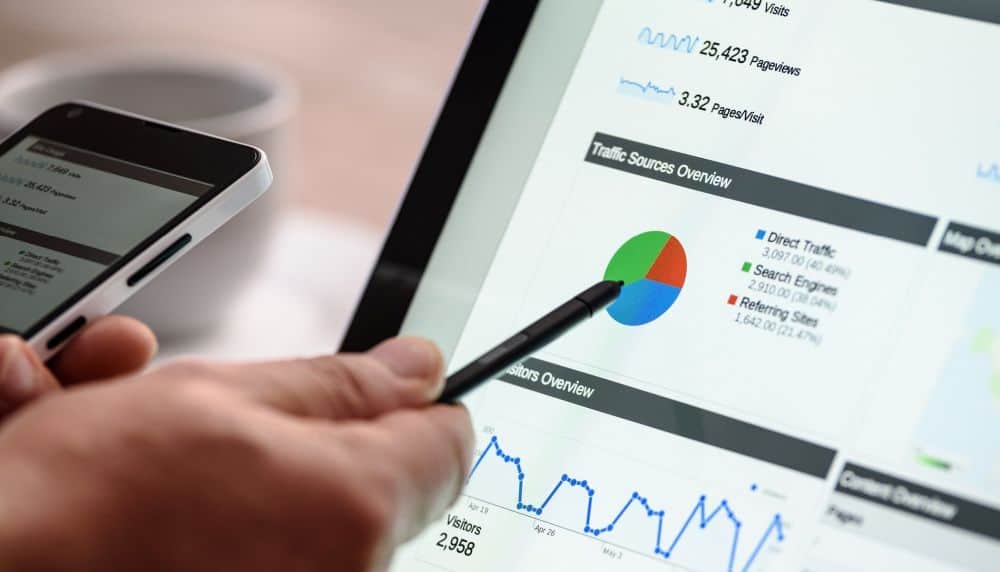
With so many people working, playing, and shopping online, brands are focusing more on digital marketing than ever before.
And digital marketing budgets are getting bigger as some experts report that Chief Marketing Officers are expected to spend almost $150 billion on digital marketing between 2018 and 2023.
There are three best ways for a beginner to learn digital marketing:
Digital marketing is a fast-paced niche in which skilled professionals are in high demand. There are a number of ways to get started in the industry.
Many digital marketers begin their careers in long-established marketing job titles before specializing. But this is far from a hard-and-fast rule. Digital marketing is one of the few fields with enough flexibility that anyone, no matter their background, can succeed in – as long as they learn the right set of skills.
If you’re thinking of transitioning into the world of digital marketing or just getting started in the field, here’s a simple guide to help you get started in digital marketing.
The first step toward building your digital marketing skills are to familiarize yourself with these 10 areas of digital marketing:
These competencies are at the center of digital marketing.
Alongside these components, it’s important to develop skills every digital marketer must have, including:
Whether it’s managing customer relationships or uncovering new marketing opportunities, there are plenty of quality tools available to make your job easier.
While new tools and technology are introduced often, there are many that are tried and true and can be a staple in your skill stack.
Here are 12 tools every digital marketer needs to know:
Getting a basic high-level knowledge of these tools can help you be aware of the tools that you may need at some point of your project flow. While it isn't necessary to be a master of all these skills, the goal of every digital marketer is to find tools you enjoy and can get maximum use from, while bringing you closer to your specialized marketing goals.
Your portfolio will serve you in many ways.
First, and most important, your digital marketing portfolio will be your best source for your professional development, your learning and becoming a better digital marketing professional.
Your digital marketing portfolio allows you to demonstrate your processes, their outcomes, and best of all, allows you to test your ideas and strategies.
What goes in your portfolio?
The sky's the limit, literally! As part of your digital marketing portfolio you could feature your:
You’ll want to keep as much data as you can from any projects you work on—digital marketers’ deal in real world numbers and data. You can also feature personal projects you've worked on or hands-on exercises that were part of your digital marketing coursework, that’s if you have no work experience.
Here's an industry secret: Include samples of published work in your portfolio, from successful social media posts and newsletters to content marketing articles.
Digital marketing is an incredibly fast-paced industry. A passion for learning and networking will help you even more.
The most important ingredient to be successful in digital marketing is learning how to perform a market test. Testing the market is the most critical of all marketing skills, and it's never been easier to quickly test your idea in the market. This is why a digital marketer needs to have knowledge of many tools in order to test a variety of marketplaces.
Here’s how:
Do your own pay per click (PPC) test driving real traffic to a Wordpress website you designed selling a product of your choice, after you researched the market using tools like Google Trends, Answerthepublic.com and Google Keyword planner.
Here’s an example:
First, Do your research using tools like Google trends:
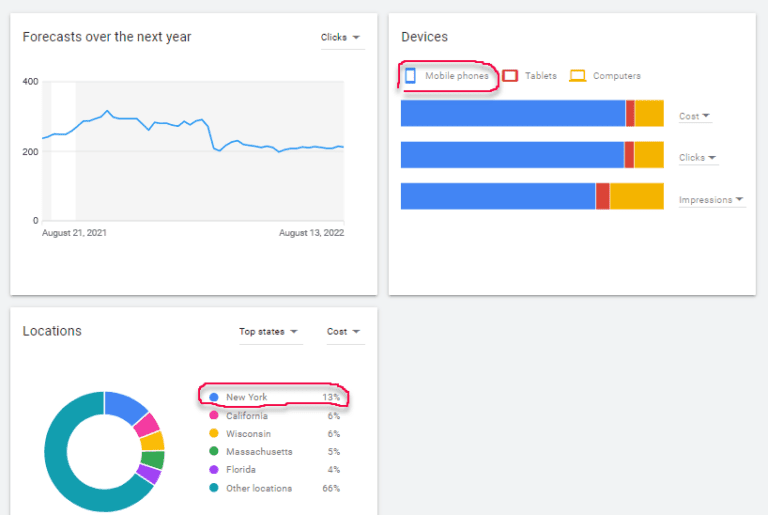 Next, use Google keyword planner to focus on a target market:
Next, use Google keyword planner to focus on a target market:
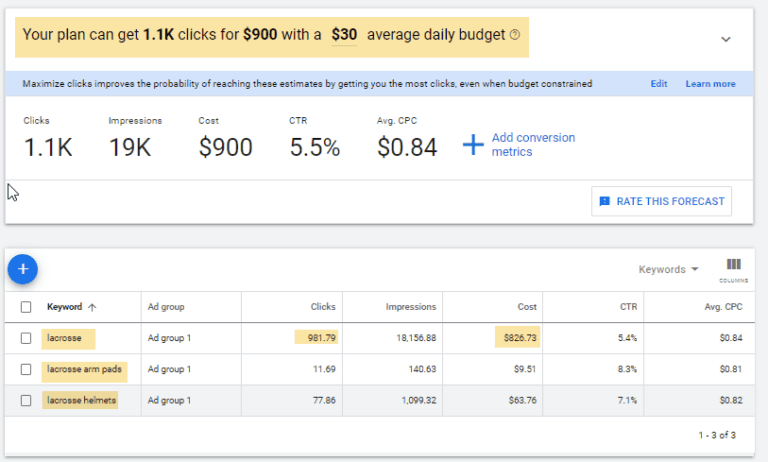
Third, build your test ad using Google Adwords or Microsoft Adcenter, to see what kind of market interest lies in your value proposition:
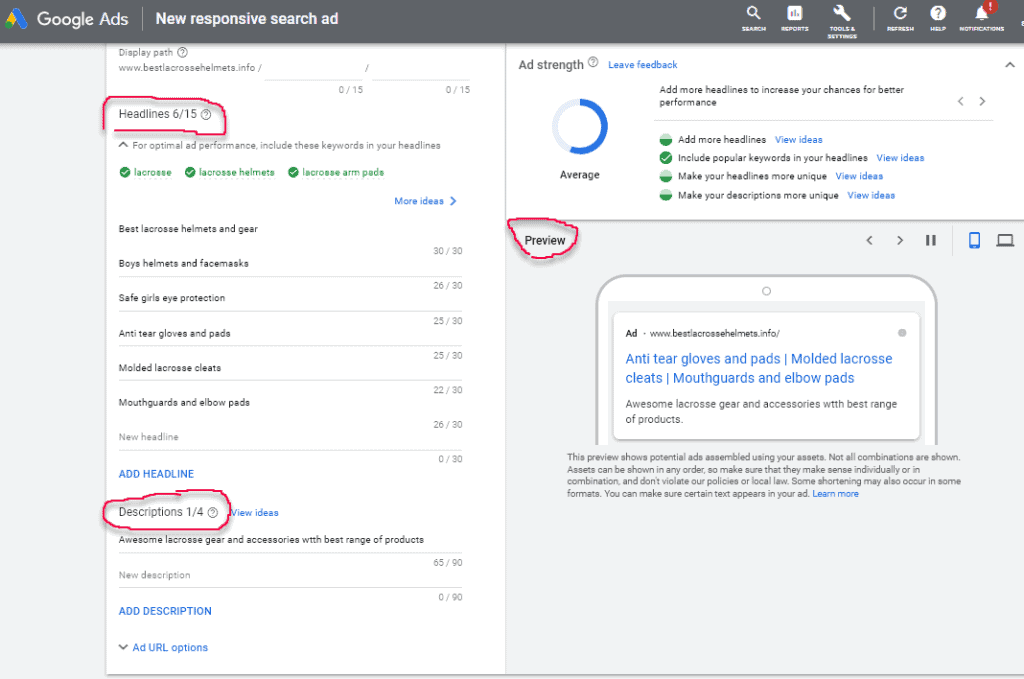
Fourth, measure your results using Google Analytics:
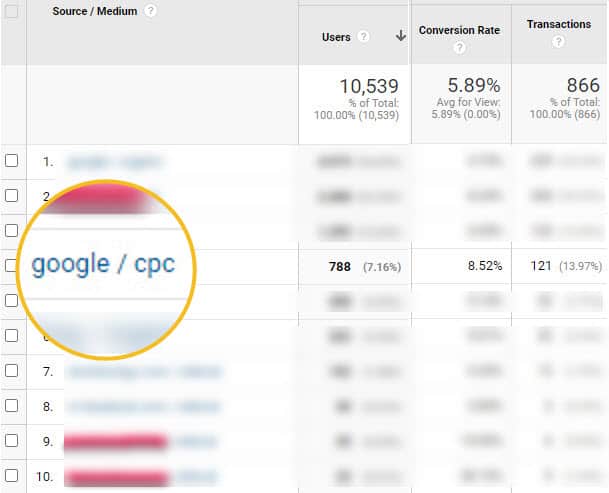 Here are a few more things you can do to kickstart your digital marketing career.
Here are a few more things you can do to kickstart your digital marketing career.
An online presence is the best way to demonstrate your digital marketing skills. You can create a professional website that showcases the projects you’ve worked on, start a digital marketing blog and most importantly, have an active social media presence.
Doing this goes a long way in developing a personal brand that showcases what you have to offer to prospective clients or employers.
The industry is constantly changing. If you fall behind on the latest digital marketing tools or channels, someone else is ready to take your place. And if you aren’t adapting, you’re going to get left behind.
A great way to stay ahead of the game is to attend virtual seminars where you get to network and learn from your peers. You can also subscribe to industry-related newsletters and take online classes on any new skill you need to learn.
Marketing is all about making connections. So, it's essential to get your name out there and have people remember you. Attending industry events is just one way to network. As a digital marketer, your online presence is your reputation. Use it to open doors and make connections by demonstrating thought leadership and showcasing original content.
Again, while it's important to have familiarity with a variety of marketing tools and analytics platforms, over time you will find great success building specialized knowledge in a particular niche.
References